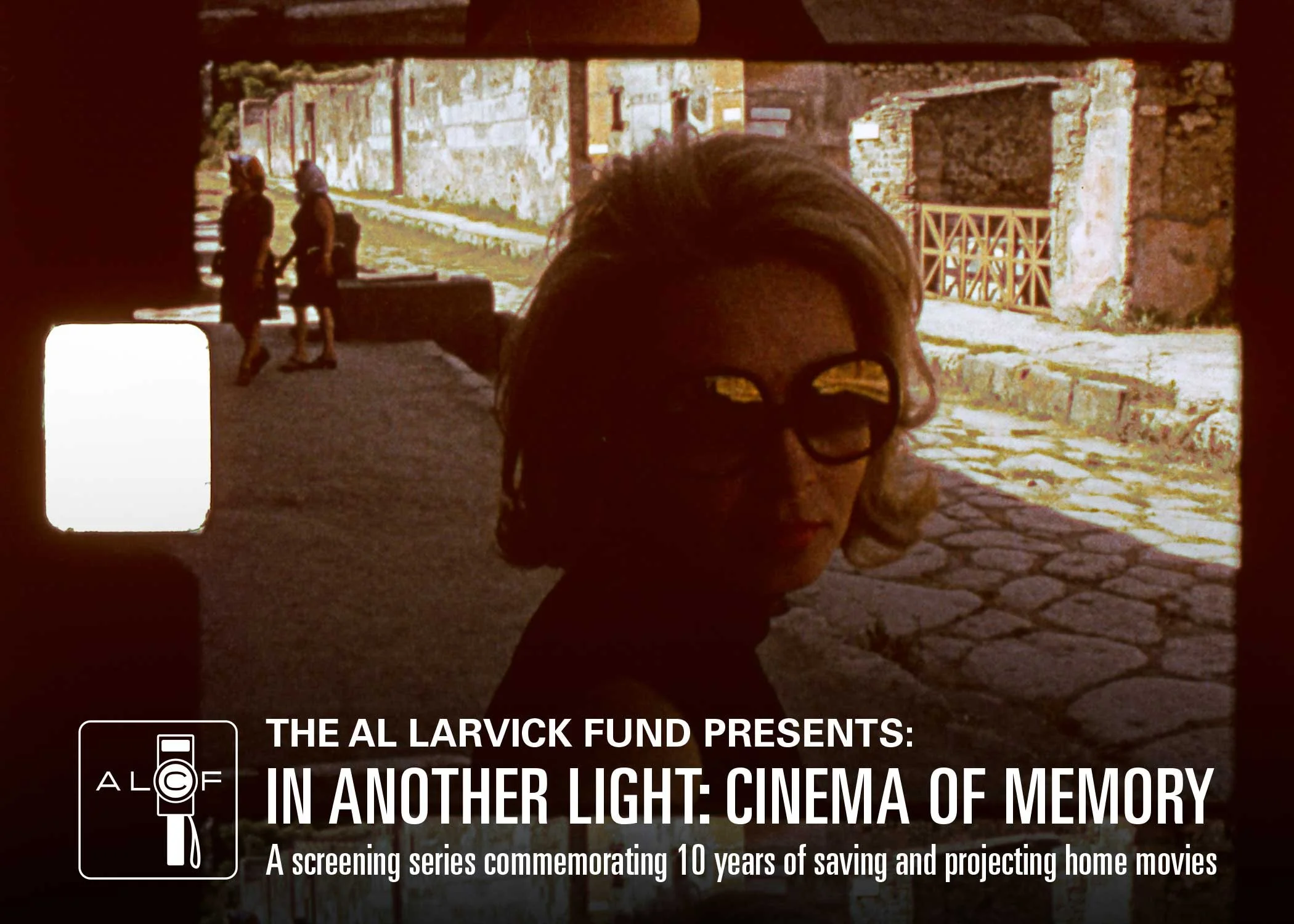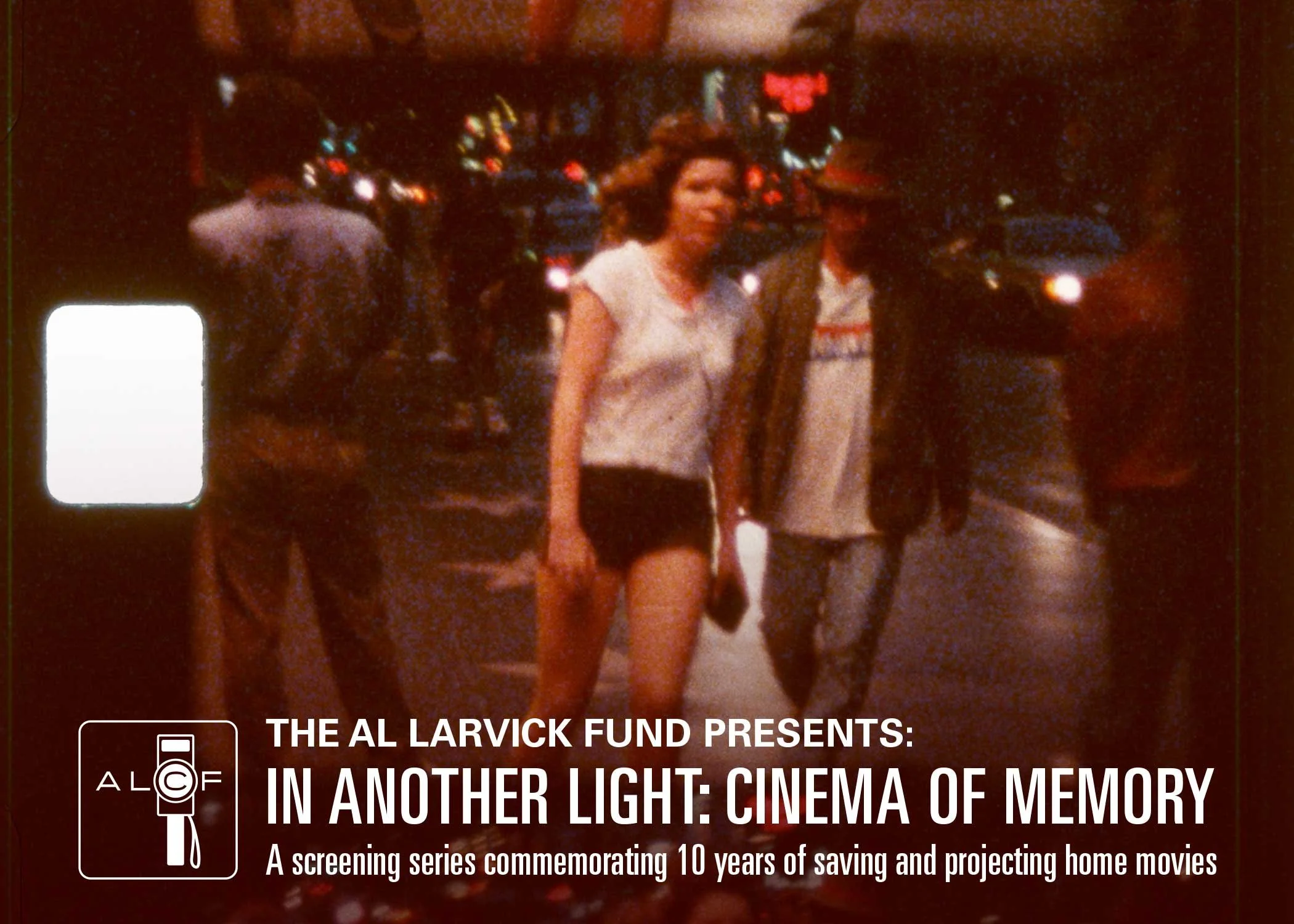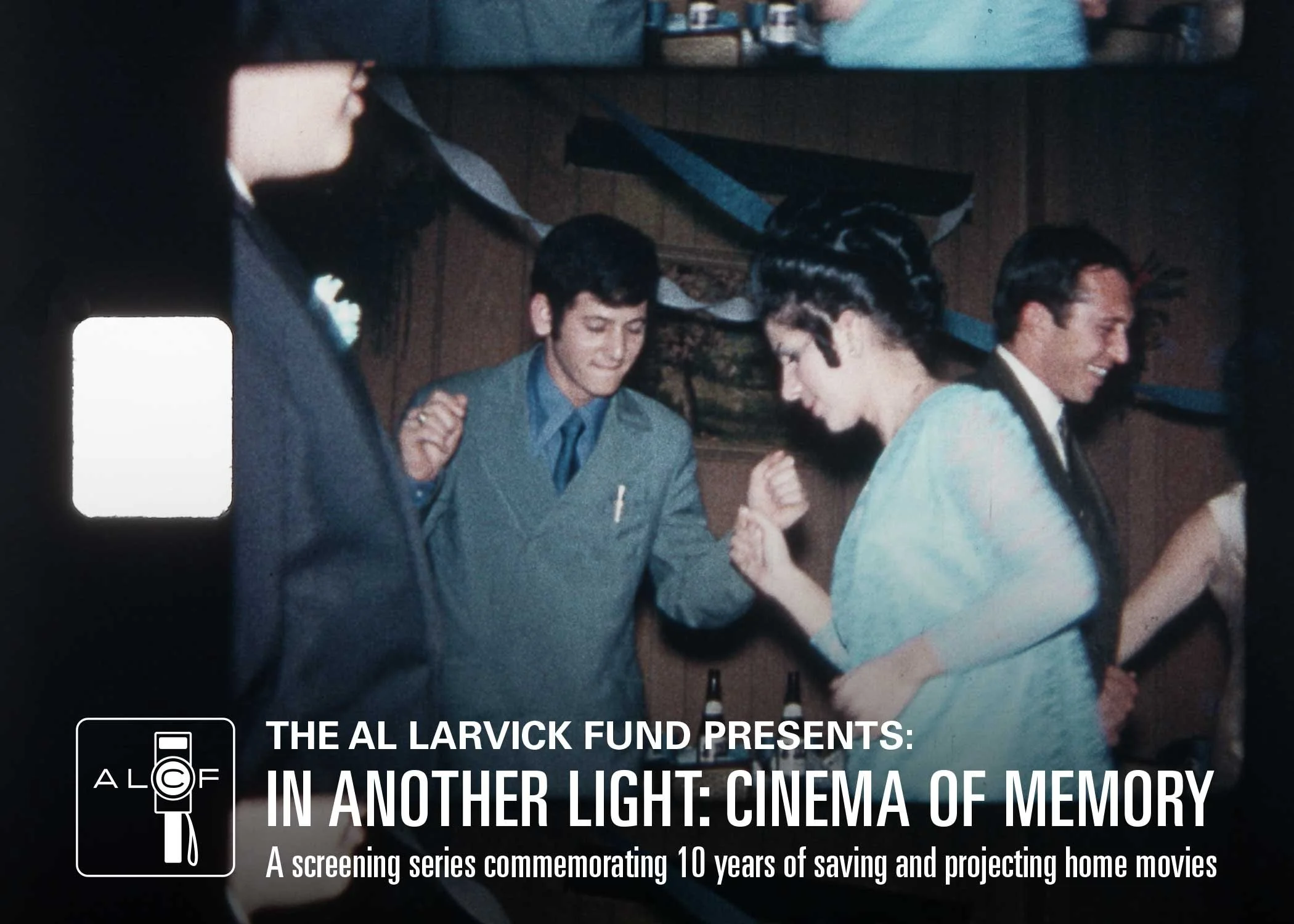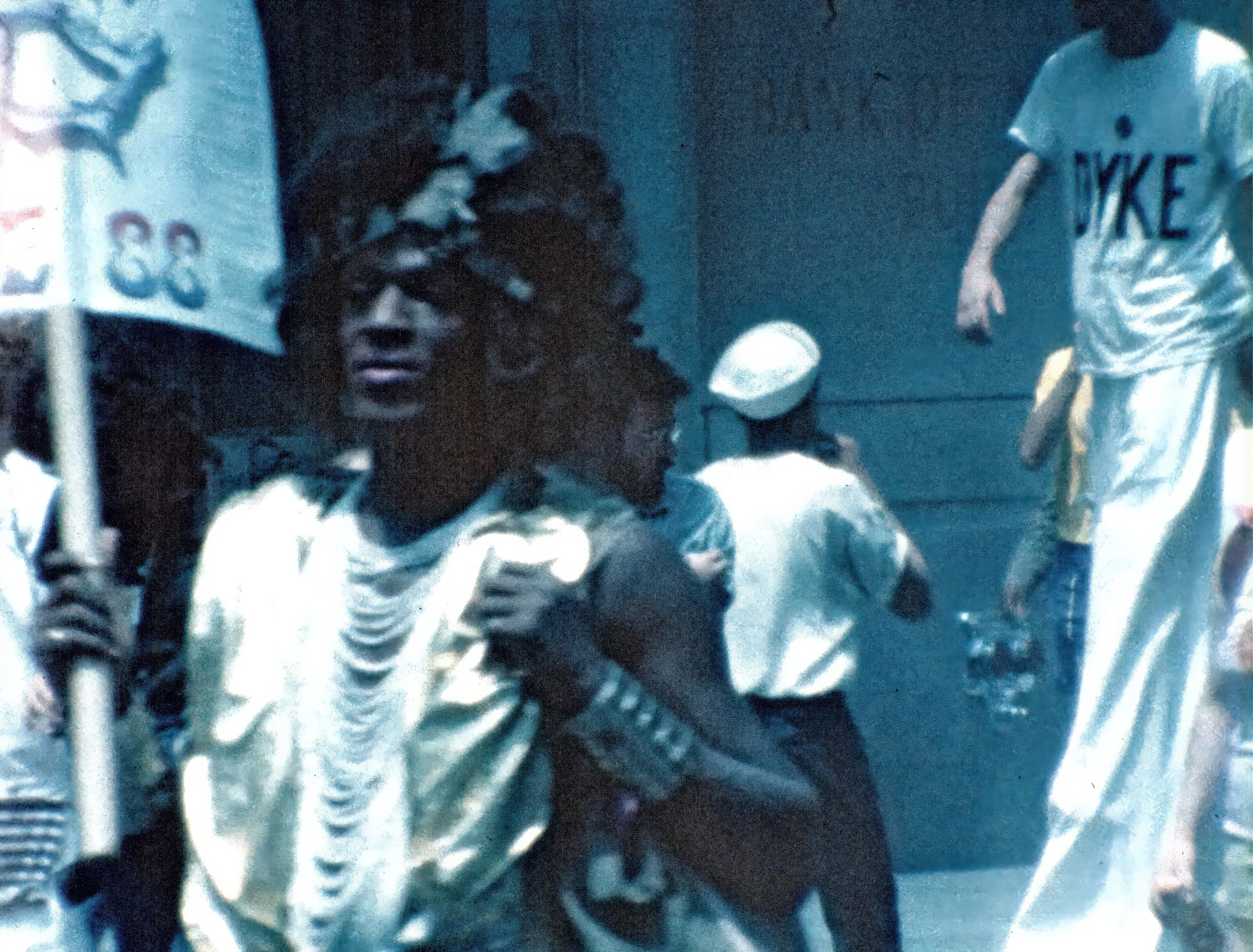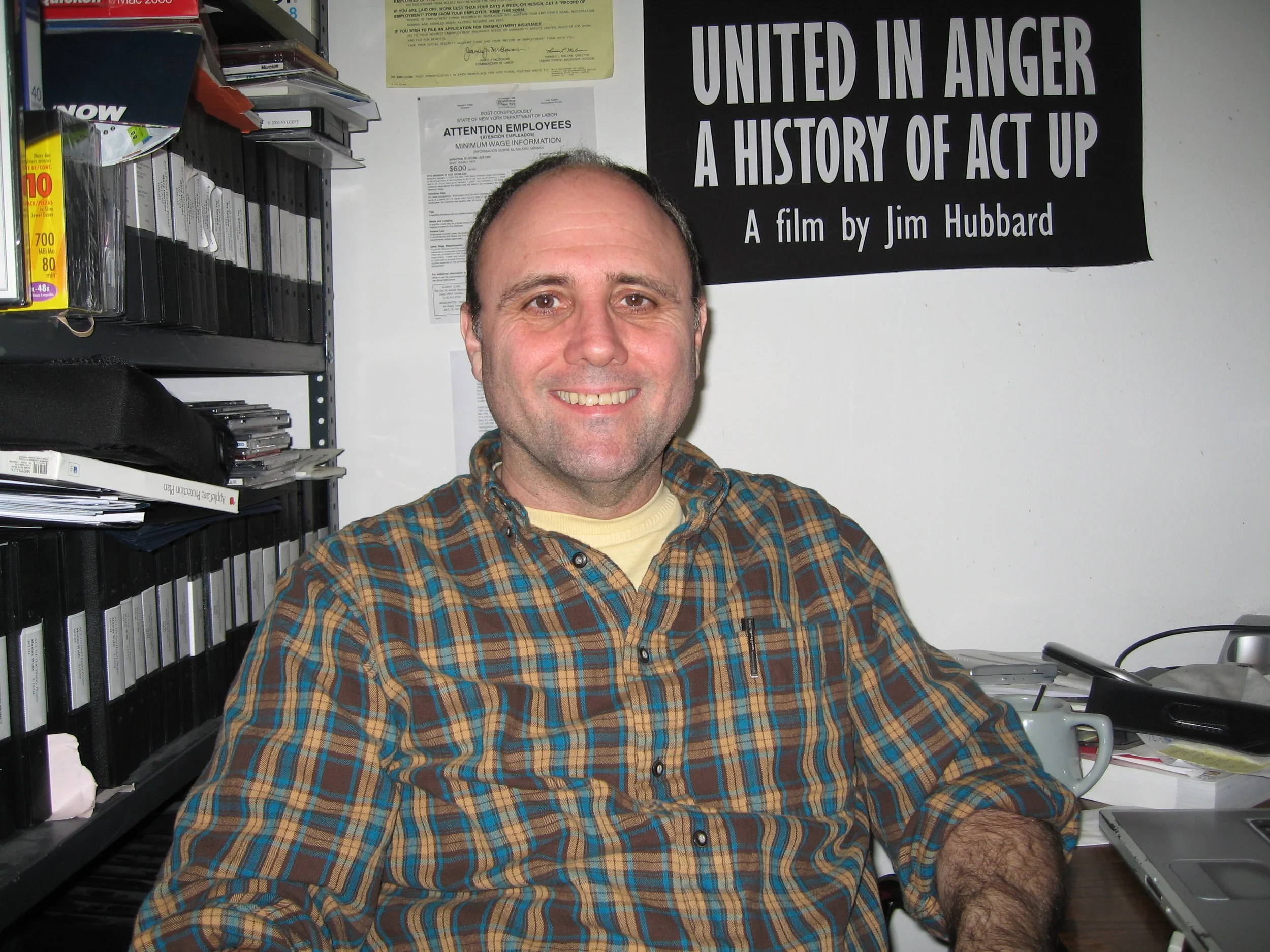Celebrating a decade
To commemorate its 10th anniversary, the Al Larvick Fund will present the screening series In Another Light: Cinema of Memory across key venues in 2025 and 2026. These programs feature live and recorded music, and post-screening discussions that amplify the importance of personal media and the communities that care for them.
Programs Rose-Colored Glasses and Artistic Impulses brings together Al Larvick Fund curators, Kirsten Larvick and Kelly Buton, acclaimed composer Gene Pritsker, and Peabody award-winning editor and producer, Kimberly Brown. Program three offers Makers & Presenters and opportunity to continue to work creatively with collections. Curated and presented by individual grant recipients, Jim Hubbard and Agata Zborowska.
See our Event page for listings
Rose-Colored Glasses: Memory, Ritual & the Cinema of Home
Curated by Kirsten Larvick & Kelly Burton
Edited by Kimberly Brown
Original Scores by Gene Pritsker
Running time approx. 42 min.
What do we see when we watch home movies—the truth of our past or new memories shaped by viewing? This program explores the ritualistic patterns that appear across family collections: weddings, parades, picnics, reunions, holidays, and vacations. These moments of celebration and gathering form a visual language of home movies—at once personal and universally familiar.
While personal media captures an individual family's story, together these images reveal a collective mythology of family life: traditions both ordinary and extraordinary, documented and revisited. As memory shifts with time, these rituals become mythic—blurring the line between what happened and what we wish to remember.
Artistic Impulses
Curated by Kirsten Larvick & Kelly Burton
Edited by Kimberly Brown
Original Scores by Gene Pritsker
Running time approx. 42min
While home movies traditionally capture domesticity, some regional makers pursue interests beyond or create around their curiosities. Crafting stories with an eye toward sharing their visions with viewers outside of family, this program showcases endeavors that activate, inform and entertain.
Exploring the evolution of grassroots filmmaking and the diverse landscape of “performance” in home movies. Makers utilized consumer equipment to experiment and create work for expanded audiences. Through this lens, the maker navigates the intersections of influence, politics, culture, and personal expression to craft something wholly unique.
Makers & Presenters: Guest Curator Selects
Curated & Edited by: Jim Hubbard (Outside In) Agata Zborowska (Not So Ordinary)
Running time per program 40-70min
The Fund invites grant recipients supported through our program to showcase and present their media. This program highlights filmmaker/artist, Jim Hubbard and cultural historian Agata Zborowska who use personal media collections creatively. Venues are invited to choose one or more collection holder programs to showcase in their space.
8mm film still: Marsha P. Johnson, 1988. Filmed by Jim Hubbard. Courtesy Jim Hubbard. Image subject to copyright laws.
Outside In: Home Movies from Immigrant and Queer Communities Filmmaker Jim Hubbard brings together three collections that reflect different facets of the immigrant and LGBTQ experience—some captured by his own lens, others recorded by family or friends. From the Gonzalez family’s post–Bay of Pigs migration and travels, to Mario Perez’s journey as part of the Mariel Boatlift and his life within New York’s gay community, to Hubbard’s own long-running documentation of Pride Marches and ACT UP demonstrations, these works are bound by his curatorial eye and enduring commitment to recording underrepresented histories.
Outside in program trailer. Edited by Amy Aquilino.
Jim Hubbard
Curator Bio: Jim Hubbard has been making films since 1974, including Nostalgia, United in Anger, Elegy in the Streets, and Memento Mori, which won Best Short Film at the Hamburg Lesbian & Gay Film Festival. He co-founded MIX NYC and the ACT UP Oral History Project and created The AIDS Activist Video Collection at the New York Public Library. Hubbard has curated film series for the Guggenheim, MoMA, and NYPL, viewing his protest, parade, and activism footage as “Queer home movies.” Jim will present at Baltimore, Los Angeles and New York screenings.
Photograph: Victoria Agatha Wielgus Sendra (middle), Bowling Team, 1950s. Courtesy Mary Sendra Anselmo. Image subject to copyright laws.
Not-So-Ordinary: How do moving images capture displaced ways of seeing? Home movies and amateur films from the “Not-So-Ordinary” archive present the immigrant gaze and evolving ways of seeing successive generations of Polish Americans in Chicago, colloquially referred to as American Warsaw. They explore the boundaries between a sense of alienation and feelings of familiarity, leading us through the affective landscape from initial bewilderment to cultural fascination to the experience of ordinariness. The program will open with a film “Chicago 1972” – which can be called a symphony of the city – recorded by Jerzy Skwarek on a Super8mm camera immediately after he immigrated to America. This amateur film will be followed by home movies of Victoria Agatha Wielgus Sendra, an extremely prolific filmmaker and grocery store owner. With her 16mm movie camera, she captured the experience of growing into American culture with the accompanying traditions still alive that her mother brought from her homeland. Additional collections include Kazimierz Szarek Home Movies, Loryś Family Collection, and Kula & Bachleda Family Film Collection.
Curator Bio: Agata Zborowska is a cultural historian specializing in material and visual cultures, property relations, and archival studies. A Marie Skłodowska-Curie Global Fellow at the University of Chicago and KU Leuven, her project, Critical Archives of Ordinariness, explores home movies and oral histories of Polish Chicago to expand perspectives on migrant identities. As a Chicago Film Archives scholar in residence, she works to enhance access to Polish diaspora films. Her research is supported by the European Commission, Kosciuszko Foundation, Franke Institute, Al Larvick Conservation Fund, and Polish National Science Centre. Agata will present at Chicago screenings.

